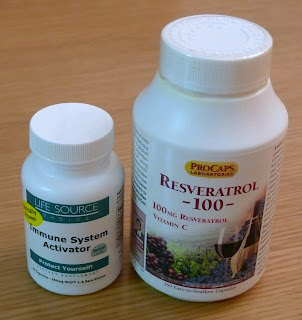



If you are new here, be sure to scroll down and read the last post, or this one will make no sense.
One of the customers (as one of my favorite columnists calls his readers) commented in an email that my anti-alcohol polemic was harsh, over the top and indefensible. Any fool, he proclaimed, knows that red wine has great health benefits and that moderate drinkers have fewer heart attacks and strokes.
Well, there may be some truth to those claims, but I’ll risk going without those perks, thank you. The Lord has taken care of me without my partaking since probably 1968, except for the time that I was invited to take communion in a church that used alcoholic wine for the purpose, and perhaps a courtesy lip touch of champagne at a wedding reception.
But let me tell you a little more about that lowly fungus that produces the stuff. After I tell you, you’re less likely to call it lowly. With a name like Saccharomyces cerevisiae, one dare not call it lowly.
Yeast is a Eukaryote. A what? That’s what I said—a Eukaryote, an organism with “advanced” cell structure with a nucleus—as opposed to cells like bacteria, which are supposed to be simpler, but aren’t. I’ve said it a thousand times here and everywhere—there is no such thing as a simple living organism or cell thereof!
All living cells have PhDs in biochemical engineering. They know how to make hundreds or thousands of very complex molecules that very smart human chemists struggle to reproduce in multi-million-dollar, government-funded laboratories—if they can do it at all. Hundreds of precisely constructed protein molecules for their structure and function, fats and oils, carbohydrates and vitamins are all engineered under instructions from their DNA. Their membranes exercise precise control over what enters and leaves.
All the operations of a cell, including yeast cells, require energy, which is obtained by “burning” sugar in a precisely-controlled, multi-stepped process. When operating most efficiently, with oxygen used in the final step, cellular respiration produces two simple waste produces, carbon dioxide and water. But when deprived of oxygen, the process stops short, producing carbon dioxide and a still rather large molecular waste produce, our old acquaintance ethyl alcohol.
Yes, ethyl alcohol is a waste product, which in my anti-booze zeal I have been known to call fungus urine. Well, it isn’t really urine because it isn’t a nitrogenous waste, but using the term tends to get peoples’ attention.
Of course, yeast produces ethanol only when cruel humans confine it in a low oxygen fermentation vessel or lump of bread dough, forcing it to self-intoxicate and die in its own waste. If given plenty of oxygen, it carries on respiration just like the rest of us and lives a long, happy life. And, as part of its own defense against invading germs, it produces an extremely useful molecule in its cell walls—a molecule that has recently been isolated and has been found very useful as an immune system strengthener. It’s called 3-6 Beta-glucan, (pictured above). Taken as a supplement, it is thought to strengthen all those hard-working white blood cells that fight off invading germs.
Another marvel of biochemistry is a molecule engineered by grape plants and incorporated into the skin of their fruit. It’s the compound that gives red wine its supposed health benefits. It’s called Resveratrol, (See above). It has had some publicity lately on 60 Minutes. Watch it here. One pill of the product pictured on the bottle equals the Resveratrol content of 165 glasses of red wine—and won’t even make you dizzy. So if we’re of a mind to, we can get the benefits without the poison. Yes, poison. (There he goes again, being so harsh.)
God has given us all things to enjoy richly (I Tim 6:17). He has engineered in every sort of creature thousands of special chemical compounds having properties that can add to our pleasure, health and longevity in His sin-cursed creation. He has allowed medicine men ranging from “primitive” shamans to PhDs to discover and refine a cornucopia of these substances and put them to use for our benefit. So I say, why not use those special molecules that the Creator has provided—and let the waste products be what they are—waste.
Now, having left that bottle of Beta-glucan on my desk for a couple of days while writing this post—and having forgotten to take any—I feel a sniffle coming on. So it’s off to the kitchen for one of those small capsules and a good belt of Welch’s (non-fermented) grape juice. Not at all harsh.

No comments:
Post a Comment